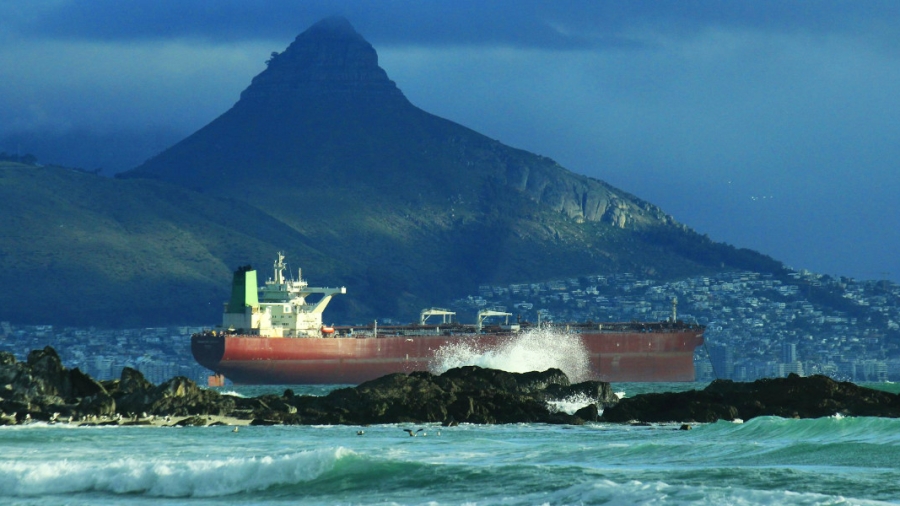In recent weeks, the Red Sea has become a hotbed of tension as Iranian-backed Houthi militants in Yemen intensify attacks on vessels, disrupting a crucial East-West trade route.
The escalating conflict has prompted shipping companies to rethink their routes, opting for longer and more expensive journeys to avoid the volatile region. As geopolitical tensions rise, major players in the shipping industry are taking strategic measures to ensure the safety of their vessels and maintain the flow of global trade.
Actions Taken by Shipping Companies:
C.H. ROBINSON – The global logistics group announced on December 22 that it had rerouted over 25 vessels around Africa in the previous week, with expectations of continued disruptions and rate increases into Q1 of 2024.
CMA CGM – The French shipping firm declared on January 19 that it would reroute a weekly service between Europe and Australia to avoid Red Sea attacks, anticipating months of disruption. Several vessels had already been rerouted via the Cape of Good Hope.
EURONAV – The Belgian oil tanker firm decided on December 18 to avoid the Red Sea until further notice.
EVERGREEN – The Taiwanese container shipping line, on December 18, rerouted vessels on regional services to Red Sea ports to safe waters nearby. Ships scheduled to pass through the Red Sea would be rerouted around Africa, and the company temporarily stopped accepting Israeli cargo.
FRONTLINE – The Norway-based oil tanker group, on December 18, announced that its vessels would avoid the Red Sea and the Gulf of Aden.
GRAM CAR CARRIERS – The Norwegian auto carrier stated on December 21 that its vessels were restricted from passing through the Red Sea.
HAFNIA – The Norwegian shipping firm declared on January 12 that it had halted all ships heading towards or within the Bab al-Mandab Strait.
HAPAG-LLOYD – The German container shipping line, on January 22, confirmed it would continue to route its vessels around Africa until further notice. The company also introduced land corridors from Jebel Ali, Dammam, and Jubail to mitigate the impact on its business.
HMM – The South Korean container shipper, on December 19, redirected its ships that would normally use the Suez Canal to sail around Africa.
HOEGH AUTOLINERS – The Norwegian auto carrier, on December 20, decided to stop sailing via the Red Sea.
KLAVENESS COMBINATION CARRIERS – The Norway-based fleet operator announced on January 16 that it would not trade any of its vessels through the Red Sea until the situation improves.
KUEHNE + NAGEL – Michael Aldwell, Executive VP for Sea Logistics at the Swiss logistics firm, stated on January 12, “Even if from today forward, the Bab al-Mandeb Strait was to become safe and secure for transit, we expect it will take a minimum of two months before vessels could assume normal rotational patterns.”
MAERSK – The Danish shipping group suspended Red Sea traffic “for the foreseeable future” on January 5. It faced disruptions and congestion at container terminals due to Red Sea-related issues and winter weather.
MSC – Mediterranean Shipping Company (MSC) declared on December 16 that its ships would not transit through the Suez Canal.
NIPPON YUSEN – Japan’s biggest shipper suspended navigation through the Red Sea for all vessels it operates, considering route changes.
OCEAN NETWORK EXPRESS – The joint venture between Japan’s Kawasaki Kisen Kaisha Mitsui O.S.K. Lines and Nippon Yusen announced on December 19 that it would reroute vessels from the Red Sea to the Cape of Good Hope or temporarily pause journeys and move to safe areas.
OOCL – The Hong Kong-headquartered container group, on December 21, instructed its vessels to either divert their route away from the Red Sea or suspend sailing. It also stopped accepting cargo to and from Israel until further notice.
TAILWIND SHIPPING LINES – The Lidl unit, which transports non-food goods for the discount supermarket chain, confirmed it was sailing around Africa for the time being.
TORM – The Danish oil tanker group decided on January 12 to pause all transits through the southern Red Sea.
WALLENIUS WILHELMSEN – The Norwegian shipping group, on December 19, announced it would halt Red Sea transits until further notice.
YANG MING MARINE TRANSPORT – The Taiwanese container shipping company, on December 18, declared it would divert ships sailing through the Red Sea and the Gulf of Aden via the Cape of Good Hope for the next two weeks.
As the Red Sea becomes a battleground for geopolitical conflicts, shipping companies are navigating challenging waters by rerouting vessels, introducing land corridors, and adapting their strategies to ensure the safety of their crews and the continuity of global trade. The ripple effects of these decisions are likely to be felt for months, emphasizing the far-reaching impact of regional conflicts on the interconnected web of international shipping.



